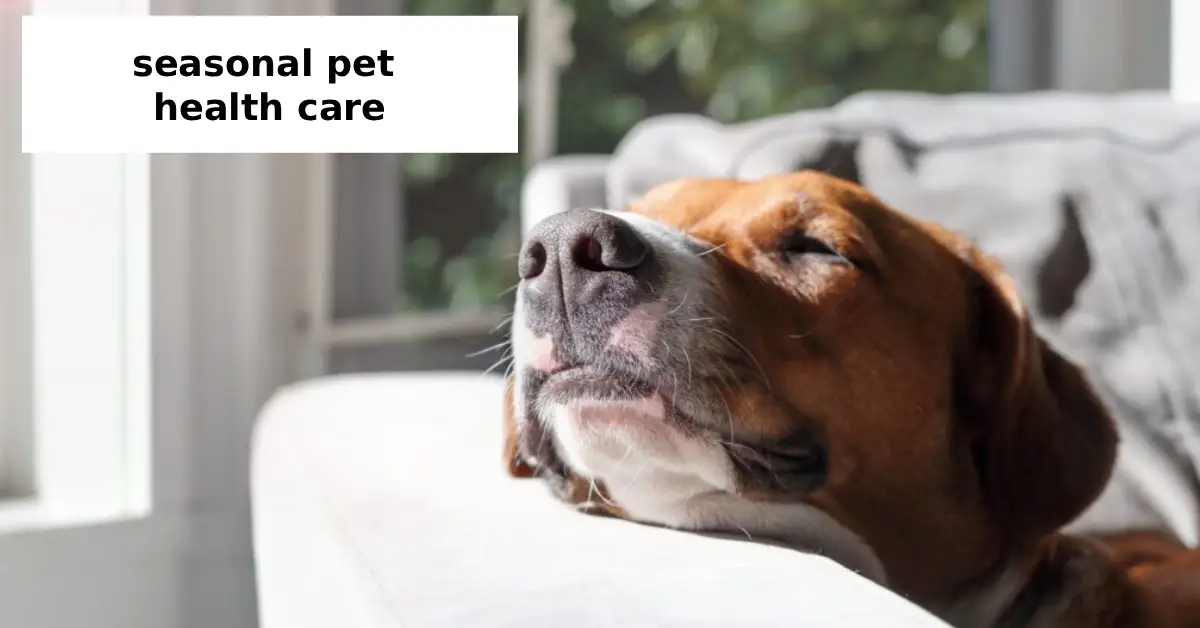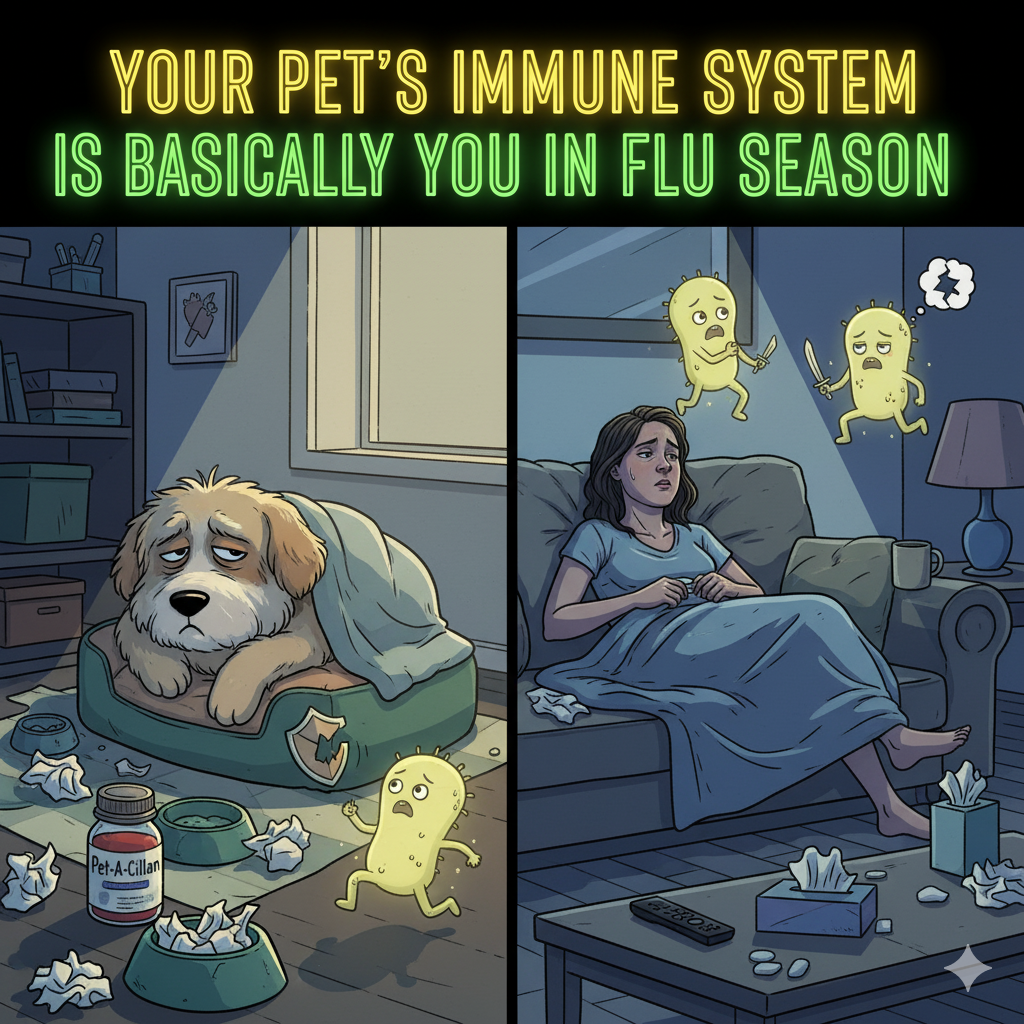Caring for pets is a year-round responsibility, but each season brings unique challenges and opportunities for their health. Seasonal pet health care is more than just routine vet visits; it’s about adapting to changes in weather, environment, and lifestyle. Whether you’re dealing with scorching summers, chilly winters, spring allergies, or autumn grooming needs, pets require extra attention to stay safe and comfortable.
This guide offers expert-backed advice for pet owners to keep their furry companions happy and healthy throughout the year. From dog health care by season to cat seasonal health guide, we’ll cover everything you need to know for all-weather wellness.
Why Seasonal Pet Health Care Matters
Just like humans, pets experience the effects of changing seasons. Heat, cold, allergens, and humidity can all impact your pet’s well-being. Practicing seasonal pet health care ensures that dogs and cats receive the right nutrition, protection, and environment to thrive in every condition.
- Pets can overheat in summer without proper hydration.
- Cold temperatures in winter may cause joint stiffness in senior pets.
- Spring pollen can trigger allergies in dogs and cats.
- Autumn often brings dry skin and shedding issues.
By taking proactive steps, families with indoor and outdoor pets can prevent illness, reduce vet bills, and improve quality of life.
Spring: Renewing Wellness and Managing Allergies
Spring is a season of growth and renewal—but also of allergies and parasites.
Spring Allergies in Pets
Many animals develop seasonal allergies in spring, just like humans. Dogs may scratch excessively, while cats might sneeze or develop watery eyes. Regular grooming, vet-recommended allergy medications, and air filters can help reduce discomfort.
Parasite Prevention
Spring is prime time for fleas, ticks, and mosquitoes. Use preventive treatments and keep your yard clean. This is essential seasonal veterinary care to avoid diseases like Lyme or heartworm.
Fresh Energy and Outdoor Play
As the weather warms, pets become more active. First-time pet parents should gradually increase playtime and exercise to prevent strain. Families with indoor and outdoor pets must also ensure safe, secure spaces for running and playing.
Summer: Hydration and Heat Protection
Hot weather can be dangerous for pets. Proper summer pet care advice keeps them safe during rising temperatures.
Hydration and Shade
Always provide fresh water and shaded areas outdoors. Senior citizens with companion pets should monitor their animals closely, as older pets are more prone to dehydration.
Avoid Overheating
Never leave pets in cars. Walk dogs early in the morning or late evening to avoid heatstroke. Cats should stay indoors where it’s cooler.
Skin and Coat Care
Sunburn isn’t just a human issue—light-colored pets are at risk too. Use vet-approved sunscreen and consider summer grooming to keep coats manageable.
Fall: Grooming and Seasonal Transitions
Autumn brings cooler weather and changes in coat growth.
Fall Pet Grooming Tips
Shedding increases in fall as pets prepare for winter coats. Regular brushing reduces hairballs in cats and prevents mats in dogs.
Outdoor Safety
Fallen leaves may hide harmful objects or pests. Supervise your pets during walks. Dog health care by season means adapting exercise routines to cooler but still active conditions.
Seasonal Nutrition
Pets may require dietary adjustments as their activity levels change. A seasonal pet nutrition guide ensures they get the right balance of calories and nutrients.
Winter: Warmth and Safety Indoors & Outdoors
Cold weather presents its own set of challenges, especially for smaller breeds and older pets.
Winter Pet Safety Tips
Keep walks short during icy conditions. Consider pet-safe jackets or booties for dogs. Cats should stay indoors to avoid frostbite.
Joint Care for Seniors
Senior pets may develop stiffness or arthritis in colder months. Extra bedding, warm environments, and vet-recommended supplements help maintain mobility.
Indoor Engagement
Since outdoor activity decreases, provide toys and indoor games to prevent boredom. Pet lovers interested in natural/seasonal wellness can try enrichment toys filled with healthy treats.
Year-Round Essentials for Pet Wellness
While seasonal adjustments are key, some practices should remain consistent year-round.
- Regular Vet Visits: Seasonal veterinary care ensures early detection of issues.
- Proper Nutrition: A balanced seasonal pet nutrition guide helps pets maintain healthy weight.
- Hydration: Pets require clean water daily, regardless of weather.
- Mental Stimulation: Engaging toys, training, and bonding time prevent anxiety.
Following these seasonal pet care tips creates a foundation for lifelong well-being.
Seasonal Pet Health Care for Dogs vs. Cats
Dogs and cats have different needs across the year.
Dog Health Care by Season
Dogs often face heat risks in summer, outdoor hazards in fall, and joint stiffness in winter. Extra exercise and grooming adjustments are vital.
Cat Seasonal Health Guide
Cats are prone to respiratory issues in spring and winter, shedding problems in fall, and dehydration risks in summer. Indoor safety and regular vet checks are crucial.
Extra Tips for Every Pet Household
- Pet owners (dog & cat households): Keep season-specific supplies like flea treatments, jackets, and allergy meds ready.
- Families with indoor and outdoor pets: Create safe outdoor play areas with shaded spots and secure fencing.
- First-time pet parents: Follow a seasonal routine checklist to avoid common mistakes.
- Senior citizens with companion pets: Choose easy-to-use care products and consult vets regularly for senior pet needs.
- Pet lovers interested in natural/seasonal wellness: Herbal shampoos, natural supplements, and holistic vet guidance can complement traditional care.
Building Trust with Reliable Care
Responsible pet care is about more than just comfort—it’s about preventing serious health issues. For example, following seasonal health routines helps prevent puppy illness and reduce long-term medical costs. Reliable organizations like the American Veterinary Medical Association (AVMA) recommend seasonal adjustments to pet wellness plans.
Final Thoughts on Seasonal Pet Health Care
Seasonal pet health care is essential for every dog and cat, no matter their breed or lifestyle. By planning ahead and making small adjustments throughout the year, you ensure your pet’s comfort, safety, and happiness. From spring allergies in pets to winter pet safety tips, proactive care protects your furry family members in all conditions.
Remember: healthy pets are happy pets. With expert seasonal pet care tips, every season becomes a chance to strengthen the bond between you and your companion.





